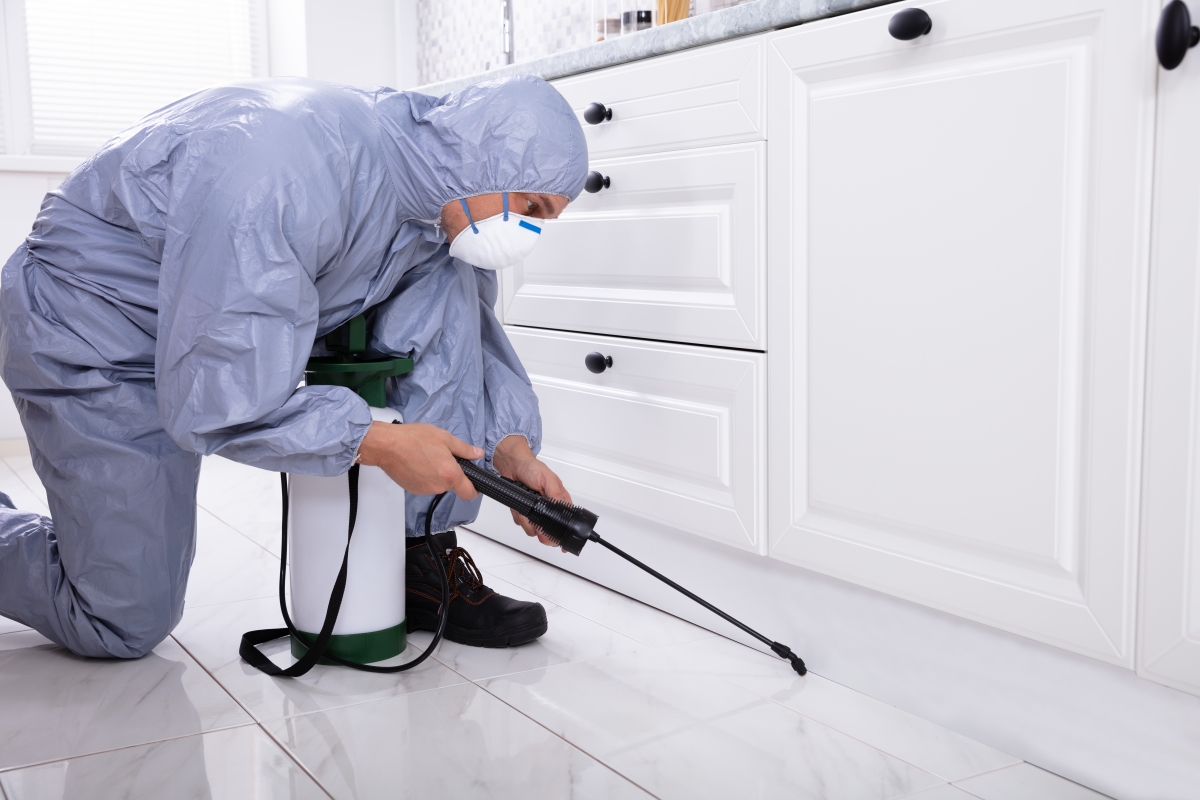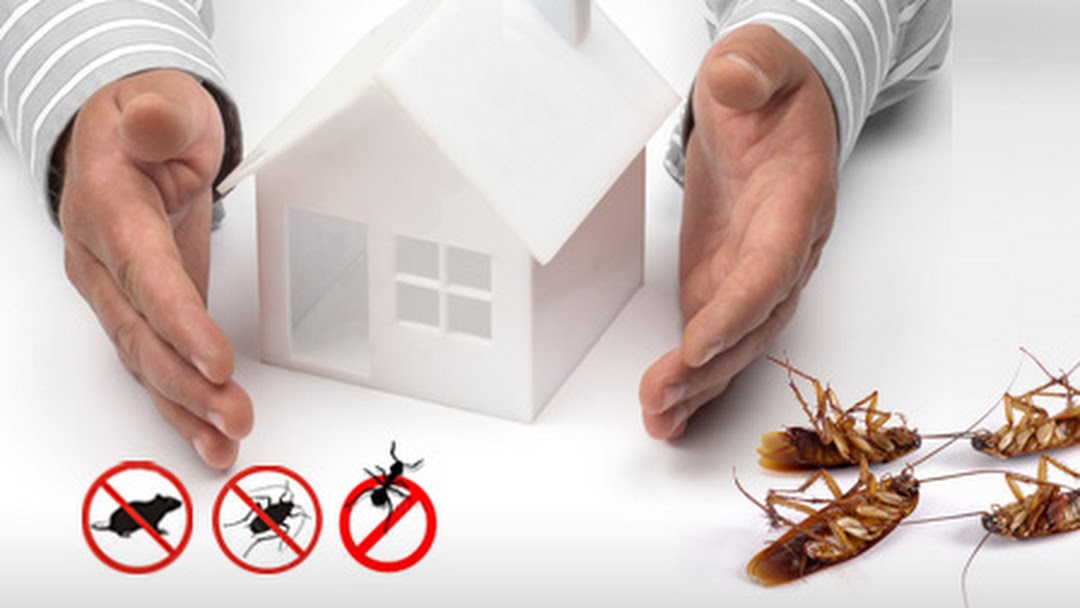Professional Wasp Control Coquitlam: Safe and Efficient Pest Removal
Professional Wasp Control Coquitlam: Safe and Efficient Pest Removal
Blog Article
Safe and Reputable Insect Control for Lasting Protection
Effective pest management needs a diverse approach that stabilizes eco-friendly stability with the demand for effective pest suppression. The subtleties of these methods might not be instantly clear, prompting a more detailed exam of the techniques that can lead to sustainable pest control outcomes.
Recognizing Parasite Control Techniques
Insect control encompasses a variety of methods targeted at handling and removing unwanted insects and rats that can threaten both health and property. Understanding these approaches is essential for reliable parasite management.
The primary categories of pest control techniques include mechanical, biological, and chemical strategies. Mechanical approaches entail physical barriers and catches to avoid parasite entrance and capture undesirable species. For circumstances, utilizing screens on home windows or employing sticky traps can significantly reduce bug populaces without introducing hazardous materials.

Chemical bug control is typically one of the most recognized method, using pesticides to get rid of pests. These chemicals can be reliable yet need to be made use of with caution to avoid unfavorable effects on non-target varieties and the atmosphere.
Advantages of Eco-Friendly Solutions
Exactly how can environmentally friendly options transform pest control practices? The adoption of green insect control methods supplies various advantages, significantly boosting the effectiveness and security of insect administration.

An additional advantage is the positive effect on local biodiversity. Environmentally friendly solutions are made to target details parasites while maintaining useful pests and wild animals, advertising a well balanced community. This approach aligns with the growing consumer demand for sustainable methods, enhancing the online reputation of bug control carriers.
Integrated Insect Management Approaches
The implementation of eco-friendly options normally results in the adoption of Integrated Pest Administration (IPM) strategies, which better boost pest control efficacy. IPM is an all natural technique that combines numerous tactics to manage parasite populations while minimizing ecological effect. This strategy highlights the usage of biological, cultural, mechanical, and chemical controls, ensuring a lasting and balanced method of insect administration.
One essential facet of IPM is the complete evaluation of bug task and environmental problems. By monitoring parasite populaces and determining their life process, specialists can execute targeted interventions that interrupt the bug's environment or lifecycle, minimizing reliance on chemical pesticides. Additionally, social techniques such as crop turning and environment control can considerably diminish bug establishment and recreation.
One more important element is the usage of biological control representatives, Your Domain Name such as valuable bugs or microorganisms, which can normally suppress pest populaces. When chemical applications are needed, IPM prioritizes making use of low-risk pesticides and applies them uniquely, minimizing exposure to non-target organisms and people.
Including IPM strategies not only enhances parasite control performance but additionally promotes a more secure environment, lining up with the growing need for sustainable techniques in insect monitoring.
Safe Practices for Property Owners
Recognizing the significance of secure techniques in insect control can encourage house owners to effectively handle parasite problems while guarding their health and wellness and the setting. Implementing safe methods and preventative steps is important in decreasing direct exposure to hazardous chemicals.
Property owners ought to initially evaluate their environment for conditions article source that attract bugs, such as standing clutter, water, and food waste. Regularly cleansing and securing access points can discourage insects from getting into the home. Using natural deterrents, such as important oils or diatomaceous planet, can offer efficient alternatives to chemical pesticides.
When chemical treatments are required, property owners should opt for items that are particularly labeled as secure for household use. It is important to follow application standards carefully to avoid too much exposure. In addition, using targeted therapies in areas where pests are recognized, instead of covering spraying, can significantly lower chemical usage.
Lastly, preserving open interaction with parasite control professionals is important. House owners should ask about the security of items used and request environmentally friendly alternatives whenever feasible. By adopting these risk-free techniques, home owners can develop a much healthier living environment while properly managing parasite problems.

Tips for Long-Term Protection
Developing a parasite administration approach that emphasizes lasting protection can considerably improve the effectiveness of the risk-free practices formerly gone over. To achieve this, home owners ought to apply regular assessments of their building, focusing on concealed locations such as attic rooms, cellars, and crawl rooms. Early discovery of pest activity is vital in protecting against problems from holding.
These methods minimize attractants that attract bugs right into the home. Securing entry points, such as cracks around windows and doors, can effectively block possible bug access.
Landscape design must also be considered; maintaining plants trimmed and keeping a range between plants and the home reduces concealing areas for pests. Making use of natural deterrents, such as essential oils or diatomaceous planet, pet safe pest control can even more dissuade problems without resorting to rough chemicals.
Finally, collaborating with a professional pest control solution for routine examinations can provide an added layer of protection. These experts can use tailored suggestions and progressed therapies, ensuring that your home continues to be safeguarded versus parasites in the long-term.
Verdict
Finally, safe and reliable bug control needs a complex method that stresses green methods and incorporated parasite administration. By implementing natural deterrents, conducting routine inspections, and preserving correct hygiene, property owners can significantly decrease parasite populations while shielding helpful insects and the atmosphere. Collaboration with specialist bug control solutions improves the performance of these strategies, making sure tailored options that supply long-term defense and comfort versus future invasions.
Efficient bug administration needs a diverse technique that stabilizes eco-friendly honesty with the requirement for efficient bug reductions. The adoption of eco-friendly insect control methods provides various benefits, substantially improving the efficiency and safety and security of parasite monitoring.The implementation of environment-friendly options normally leads to the adoption of Integrated Pest Management (IPM) strategies, which further boost parasite control effectiveness. exterminator coquitlam. By checking bug populations and recognizing their life cycles, experts can execute targeted interventions that interfere with the bug's habitat or lifecycle, reducing dependence on chemical pesticides.In final thought, reputable and safe bug control requires a diverse technique that emphasizes green techniques and incorporated insect monitoring
Report this page